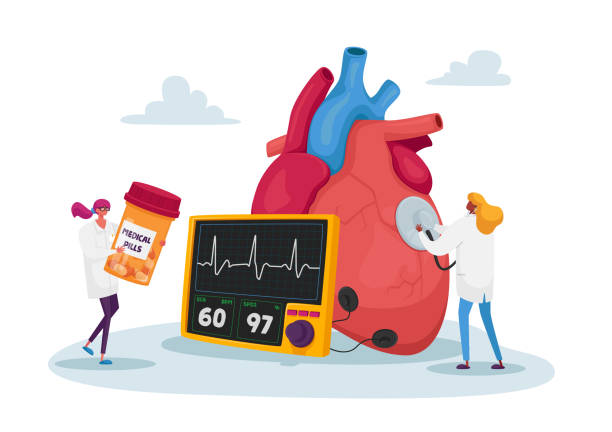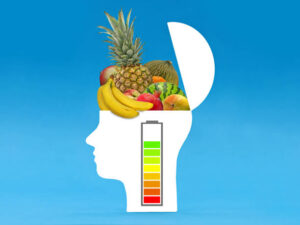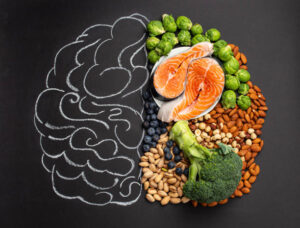When I first embarked on my vegan journey, I sought a way to align my eating habits with my values. Little did I know, I was also making a decision that would profoundly impact my heart health.
For those of you curious about how a vegan diet can benefit your cardiovascular system, you’re in the right place! Today, we’ll explore the best vegan foods for heart health, why they’re essential, and how they differ from a plant-based diet.
Understanding Heart Health
What is Heart Health?
Heart health refers to the overall condition of your heart and blood vessels, crucial for maintaining good circulation and preventing cardiovascular diseases. Issues like high blood pressure, high cholesterol, and atherosclerosis can increase the risk of heart attacks and strokes. A healthy diet is one of the most effective ways to support heart health.
The Role of Diet in Cardiovascular Health
Our bodies thrive on a balanced intake of nutrients, and our food plays a pivotal role in how well our hearts function. Studies have shown that diets rich in fruits, vegetables, whole grains, nuts, and seeds can lower cholesterol, reduce blood pressure, and decrease inflammation—all factors that are crucial for maintaining a healthy heart.
Vegan vs. Plant-Based Diet: What’s the Difference?
Defining the Two Diets
- Vegan Diet: A vegan diet excludes all animal products, including meat, dairy, eggs, and honey. It focuses on various plant foods and may often include processed vegan foods.
- Plant-Based Diet: While a plant-based diet also emphasizes whole plant foods, it may allow for some animal products in moderation. It prioritizes whole, minimally processed foods, focusing on maximizing health benefits.
We have explained this difference in detail in this article. This distinction is essential because it highlights how you can still enjoy some flexibility with a plant-based diet while a strict vegan approach is more about lifestyle choices and ethical considerations.
My Experience with Vegan and Plant-Based Diets
When I transitioned to a vegan lifestyle, I initially thought I’d miss my favorite foods. However, I discovered that exploring new ingredients and recipes opened up a world of culinary possibilities. I found that a plant-based diet, when I allowed myself the occasional non-vegan food, made it easier to stick to healthier eating habits while enjoying some old favorites in moderation. This experience led me to understand the importance of balance—both in food choices and in life.
The Best Vegan Foods for Heart Health
Now that we’ve set the stage, let’s dive into the best vegan foods that can help nourish your heart. These foods are not only delicious but also packed with nutrients that support cardiovascular health.
1. Leafy Greens
- Nutritional Powerhouses
Leafy greens like spinach, kale, and Swiss chard are rich in vitamins A, C, and K, as well as antioxidants. These nutrients help reduce inflammation and improve blood vessel function.
- A Simple Salad Idea
One of my go-to meals is a simple kale salad. I massage the leaves with a bit of olive oil and lemon juice, then toss in some cherry tomatoes, avocado, and a handful of walnuts. This delicious salad is not only a treat for the taste buds but also a nutrient-dense meal that supports heart health!
2. Berries
- Antioxidant-Rich Delights
Berries, such as blueberries, strawberries, and blackberries, are high in antioxidants and fiber. They help lower cholesterol levels and reduce blood pressure.
- A Sweet Treat
I love making smoothies with a handful of mixed berries, a banana, and a scoop of plant-based protein powder. It’s a refreshing treat that’s also incredibly heart-healthy. Plus, you can add spinach or kale to it without altering the taste too much!
3. Nuts and Seeds
- Healthy Fats for Your Heart
Nuts like walnuts and almonds, as well as seeds such as chia and flaxseeds, are excellent sources of omega-3 fatty acids. These healthy fats can help lower bad cholesterol levels and reduce inflammation.
- Snack Time
When I need a quick snack, I grab a handful of walnuts or sprinkle chia seeds over my oatmeal. It’s a small but mighty addition that elevates my meal while boosting heart health.
4. Whole Grains
- Fiber-Rich Choices
Whole grains such as oats, quinoa, brown rice, and barley are excellent sources of fiber. They help maintain healthy cholesterol levels and keep your heart functioning optimally.
- Breakfast Boost
I start many mornings with a bowl of oatmeal topped with fresh fruit and a drizzle of maple syrup. It’s a filling breakfast that fuels my day while supporting my heart health.
5. Legumes
- Heart-Healthy Proteins
Lentils, chickpeas, and beans are fantastic sources of plant-based protein and fiber. They not only support muscle health but also help regulate blood sugar levels, making them a great addition to any meal.
- Comforting Meals
I often whip up a hearty lentil soup or a chickpea curry. These dishes are not only comforting but also nutrient-rich, making them perfect for maintaining a healthy heart.
6. Avocado
- A Creamy Delight
Avocado is a unique fruit packed with healthy monounsaturated fats and potassium. These nutrients are crucial for lowering blood pressure and supporting heart health.
- Perfect for Toast
I enjoy avocado toast for breakfast, topped with cherry tomatoes and a sprinkle of salt and pepper. It’s a simple yet delicious way to incorporate heart-healthy fats into my diet.
7. Dark Chocolate
- The Sweet Side of Heart Health
Good news for chocolate lovers! Dark chocolate, particularly in varieties with at least 70% cocoa, is rich in flavonoids that can improve circulation and lower blood pressure.
- Indulgent Treats
I occasionally indulge in a few squares of dark chocolate after dinner. It satisfies my sweet tooth while providing a heart-healthy boost.
8. Sweet Potatoes
- Nutrient-Dense Carbs
Sweet potatoes are packed with fiber, vitamins A and C, and potassium. Their high fiber content helps manage blood pressure and cholesterol levels.
- Comforting Side Dish
I love roasting sweet potato wedges with a bit of olive oil and herbs. They make for a delicious, satisfying side dish that’s great for heart health.
9. Tomatoes
- Heart-Healthy Antioxidants
Tomatoes are an excellent source of lycopene, an antioxidant known for its heart-protective properties. They also provide vitamins C and K.
- Savory Sauces
I often whip up a fresh tomato sauce to drizzle over whole grain pasta or use in veggie stir-fries. It adds a burst of flavor while promoting heart health.
10. Beets
- Blood Pressure Benefits
Beets are rich in nitrates, which can help lower blood pressure and improve blood flow. They also contain antioxidants and fiber.
- Vibrant Juices
I enjoy blending beets into smoothies or juicing them with other veggies for a vibrant drink. It’s a tasty way to support heart health while boosting my nutrient intake.
Practical Tips for Incorporating Vegan Foods into Your Diet
Meal Planning and Preparation
Planning meals can make it easier to stick to a heart-healthy vegan diet. Consider setting aside some time each week to prep ingredients and plan out meals. This approach helps eliminate the temptation to reach for unhealthy options.
Easy Recipes for Heart Health
- Vegan Buddha Bowl: Combine brown rice, roasted sweet potatoes, chickpeas, and sautéed spinach. Top with tahini sauce for a delicious and filling meal.
- Quinoa Salad: Mix cooked quinoa with diced cucumbers, bell peppers, parsley, and a lemon-olive oil dressing. It’s light, refreshing, and packed with nutrients.
Mindful Eating
Pay attention to portion sizes and practice mindful eating. Eating slowly and savoring each bite can help you enjoy your meals while preventing overeating.
Exploring the Benefits of Vegan Foods for Heart Health
Lowering Cholesterol
Many vegan foods are naturally cholesterol-free and high in fiber, which helps lower LDL (bad cholesterol) levels. Consistently choosing plant-based options can significantly impact your heart health.
Managing Blood Pressure
A diet rich in fruits, vegetables, and whole grains provides potassium, magnesium, and other nutrients that are essential for regulating blood pressure.
Reducing Inflammation
Chronic inflammation is linked to many heart diseases. By incorporating anti-inflammatory foods such as berries, leafy greens, and nuts into your diet, you can help reduce the risk of heart-related issues.
Conclusion: Embrace a Heart-Healthy Lifestyle
Embracing a vegan lifestyle can be a fulfilling journey, especially when you prioritize heart health. By incorporating the best vegan foods for heart health into your meals, you can nourish your body and support your heart.
Whether you follow a strict vegan diet or adopt a more flexible plant-based approach, the key is to focus on whole, nutrient-dense foods. Remember, it’s not just about what you exclude but what you include in your diet.
As you transition to these heart-healthy vegan foods, remember that making small, sustainable changes can lead to significant benefits over time. Your heart will thank you!
Additional Resources
For those looking to dive deeper into vegan diets and heart health, consider checking out the following resources:
- Books: How Not to Die by Dr. Michael Greger provides an excellent overview of how diet impacts health.
- Websites: The American Heart Association offers guidance on heart-healthy eating.
- Consulting: Always consult with a healthcare provider or nutritionist to tailor a dietary plan that suits your needs.







